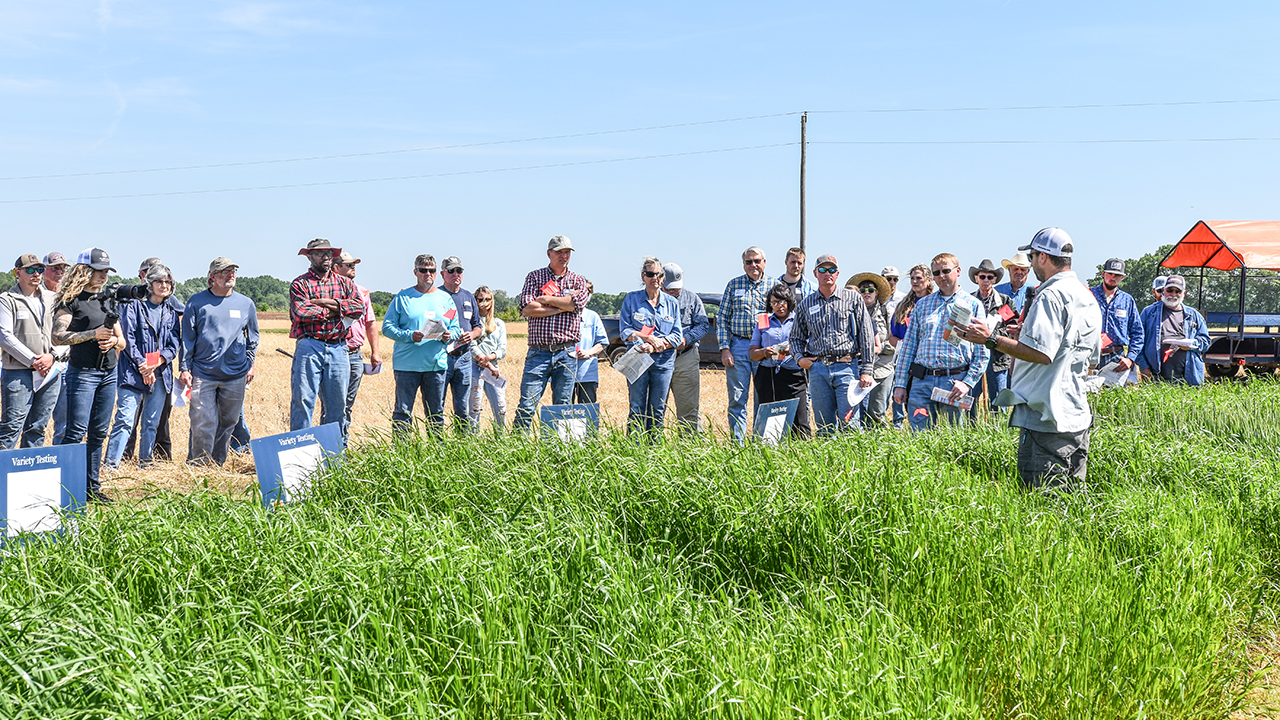Auburn University
Variety Testing Program

Variety selection is the most important decision a farmer can make. If farmers want to be successful, they must ensure that they plant varieties that are well adapted. If a farmer selects the wrong variety, the results can be catastrophic. Typically, farmers do not have the resources to conduct variety trials in addition to their normal growing season activities.
Variety evaluation is also critical to plant breeders, both from universities and industry. Prior to releasing a new variety, these breeders typically evaluate their lines in independent variety trials. This ensures that they have unbiased data from multiple years and locations to support the release of their new variety.
The mission of the Auburn University Variety Testing Program is to provide research-based, unbiased results on the performance of various crop hybrids, cultivars, and varieties to the agricultural community in Alabama. We are intent on conducting these trials in a manner that will result in maximum biological yield through methods common to the top-producing farms in Alabama.
We are committed to providing this information in a timely manner for its use during the decision-making process. The success of the program rests on our ability to help Alabama producers provide a safe, dependable source of food and fiber for all families as well as an economic sustainability for theirs.

Henry Jordan
Variety Testing Manager, Research Associate IV
Subscribe to AU Variety Testing Updates
Annually, the Auburn University Variety Testing Program conducts trials on corn, cotton, soybeans, peanuts, grain sorghum, wheat, barley, oats, triticale, small grain forages, and ryegrass.
Trials are conducted on Auburn University owned and operated agricultural research stations across the major geographical regions of the state. The research conducted at each of these locations can provide stakeholders with data that can be more representative of their growing conditions.
VARIETY CATEGORIES
2024 Sorghum OVT Entry Form
January 16 - Entry forms for the 2024 Auburn University Official Grain Sorghum Variety Trials are now available. Entry forms are due by March 15th. Please send seed as soon as possible, preferably no later than April 30th. Grain sorghum will be late-planted, behind...
Performance of Cotton Varieties in Alabama, 2023
January 29 2023 OVT cotton data updates are concluded. Quality results are available for the WREC Short Season Non-Irrigated OVT. Quality results for the WREC Full Season Non-Irrigated are excluded due to an incomplete dataset. January 3 Quality results (micronaire,...
Performance of Peanut Varieties in Alabama, 2023
February 12, 2024 2023 Peanut OVT results are complete. Seed per pound at harvest is available for all five OVTs. January 8, 2024 - Quality results are available for the OVTs conducted at the GCREC, BARU, & EVSRC. November 18 - Quality results are available for...
2023 On-Farm Cotton
January 3 2023 On-farm cotton results, compliments of Tyler Sandlin - On-Farm Cotton Coordinator, are now available. The on-farm cotton trials are split into two categories, North & South. Summary tables are provided for each. However, they have been filtered...
2024 Corn OVT Entry Forms
December 14 - Entry forms for the 2024 Auburn University Official Corn Variety Trials (OVTs) are now available. Entry forms are due by February 2nd. Please send seed as soon as possible, preferably no later than February 19th. Entries can be submitted by region...
Performance of Soybeans in Alabama, 2023
December 5 Yield results are available for the three soybean trials conducted at the Sand Mountain Research and Extension Center (SMREC) in Crossville. November 30 Yield results are available for the 8 soybean trials conducted at the Black Belt Research and...
